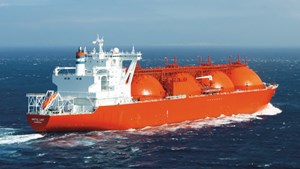TotalEnergies to stop buying Russian oil, funding arctic LNG
(Bloomberg) — TotalEnergies SE said it will stop buying Russian crude and diesel by the end of the year, becoming the latest energy giant to shun the country’s oil in protest against the invasion of Ukraine.
The announcement marks a further effort to reduce financial flows to the regime of President Vladimir Putin as punishment for the attack on his neighbor.
“Given the worsening situation in Ukraine and the existence of alternative sources for supplying Europe, TotalEnergies has unilaterally decided to no longer enter into or renew contracts to purchase Russian oil and petroleum products,” the French company said in a statement on Tuesday.
However, unlike peers including Shell Plc and BP Plc that plan to quit Russia altogether, TotalEnergies said it would keep its stakes in the country’s companies and hydrocarbon projects, rejecting criticisms from Greenpeace and the Church of England. It would be impossible to find a non-Russian buyer so “abandoning these interests without consideration would enrich Russian investors, in contradiction with the sanctions’ purpose,” according to the statement.
The French company owns 19.4% of Novatek PJSC, Russia’s top producer of liquefied natural gas. It also has stakes in the Yamal LNG plant, the Arctic LNG 2 project that’s still under construction, as well as interests in other oil and gas fields.
After previously saying it wouldn’t invest in new projects in Russia, TotalEnergies added on Tuesday that it will no longer account for proved reserves from Arctic LNG 2, and will not provide any more capital for the development.
In accordance with the European Union’s decision to keep buying Russian gas, the company said it will continue to supply the region with cargoes from Yamal LNG within the framework of long-term contracts. It won’t purchase Russian gas on the short-term market.
TotalEnergies said it will terminate its Russian oil supply contracts, including crude supplies for the Leuna refinery in Germany and purchases of gasoil, no later than the end of 2022. The company will put in place alternative solutions by importing crude for Leuna via Poland and bringing in gasoil from Saudi Arabia, where it has a stake in the Satorp refinery, to help reduce a diesel squeeze.



